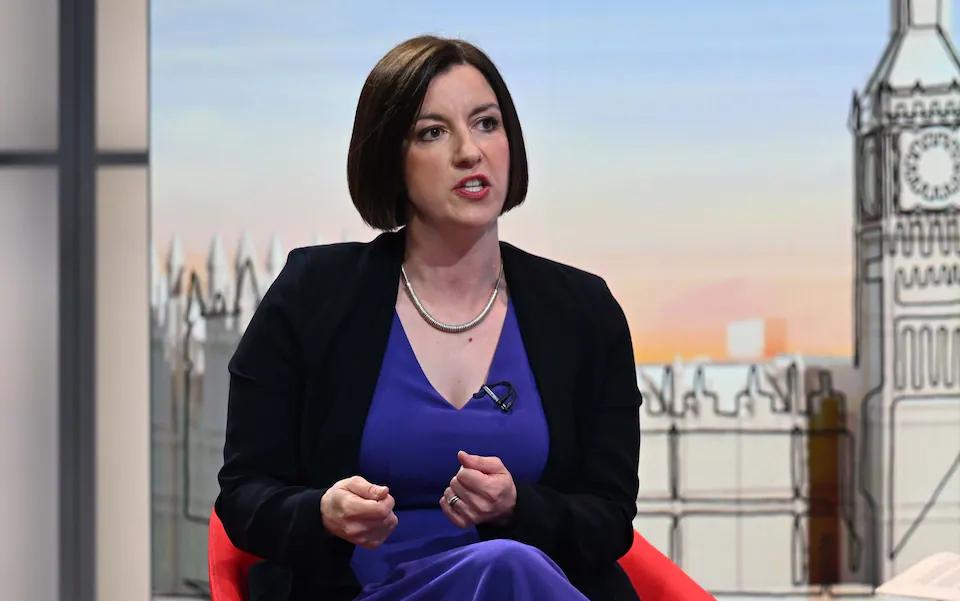Labour has announced a major shift in England’s sex education policy, scrapping previous Conservative plans to ban children under the age of nine from receiving sex education.
The updated statutory guidance, set to be released on Tuesday, will instead recommend rather than mandate that sex education be introduced no earlier than year five.
However, primary schools will retain the discretion to teach younger pupils if deemed appropriate.
The move marks a departure from draft guidance issued under the Conservative government, which sought to enforce stricter age thresholds and limit discussions of sensitive topics such as extreme sexual violence and gender identity.
Labour’s revised curriculum also rolls back plans to place an age restriction on content related to sexual offences. The Tories had proposed not teaching these topics in any explicit way before year nine.
Education Secretary Bridget Phillipson speaks
Education Secretary Bridget Phillipson argued that such restrictions were out of touch with the reality many children face. “By Year 9, it’s too late,” she said, stressing the need for earlier, age-appropriate conversations, especially as many teenagers, particularly girls, are already encountering harmful content and experiences online.
Despite support for the more flexible approach, Phillipson has faced criticism over delays in publishing the revised guidance, which comes over a year after the public consultation closed.
Shadow Education Secretary, Laura Trott, accused the government of weakening critical safeguards: “It’s not partisan to protect children from age-inappropriate content,” she said, warning that removing hard age limits could lead to children being exposed to complex topics too early.
However, Labour’s guidance will mirror Conservative concerns over ideological influence in schools. It will maintain a cautious approach to gender identity, instructing schools not to present contested issues as fact. Pupils will be taught the legal and biological facts around gender reassignment, but schools will be discouraged from teaching broader gender identity concepts as unquestioned truths. Whether teachers can still introduce such topics as opinions remains unclear.
Sir Keir Starmer previously stated he opposed the teaching of ideology in schools regarding gender, a stance that aligns with Labour’s current direction. In contrast, the previous Tory administration had pushed for a total ban on the teaching of gender identity in schools.
Labour’s RSHE (Relationships, Sex and Health Education) reforms will also introduce new content to tackle online harm. Pupils will be educated about pornography, harmful deepfake content, and the growing influence of misogynistic subcultures such as the incel movement. Lessons will include content to help boys identify positive role models and counteract toxic messages from online personalities such as Andrew Tate.
Phillipson emphasised the urgency of equipping children to navigate the digital world safely. “I want our children to be equipped to defy the malign forces that exist online,” she said. “Schools and parents alike have a vital role to play.”
While the Department for Education (DfE) said the new guidance will take effect from September 2026, it has not yet confirmed whether parents will be guaranteed the right to view all RSHE materials, a key element of the former government’s proposal. Separate guidance on supporting gender-questioning children is also expected to follow at a later date.
Children’s Commissioner Dame Rachel de Souza welcomed the update but stressed that effective teaching and parental involvement remain vital. “A strong curriculum is only as good as those who teach it,” she said, urging the government to invest in specialist RSHE educators.
She also emphasised the need for open communication between parents and children, particularly in the face of increasing exposure to explicit content online.
Research from her office revealed that one in ten children had encountered pornography by the age of nine, often through mainstream social media platforms. “Children want boundaries,” she said. “We must talk to them openly and early about what they are seeing.”
RSHE has been a compulsory part of the national curriculum since 2020. Labour’s revisions represent not just a change in timing and content but a broader attempt to balance safeguarding with realism in an increasingly complex digital age.
Read also: Phillipson: UK set to withdraw support for special needs pupils



